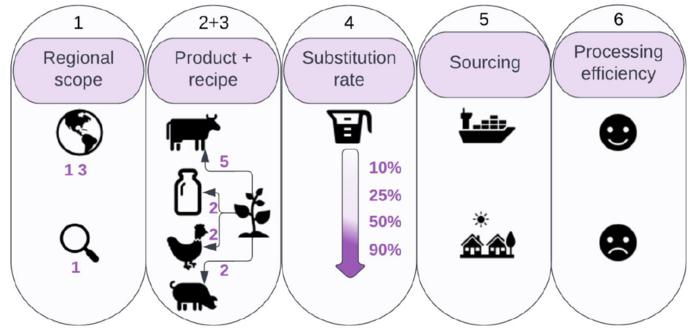Meat the Facts: How Your Burger's Carbon Footprint Just Got Grilled
Swapping out half our meat and milk for plant-based alternatives by 2050 could be the climate's next big break, according to a recent study
Antoninavlasova (Canva)
Alright, let's get nerdy. You know how we all love a good steak or a glass of milk? Well, some scientists have just dropped a paper in Nature Communications that might make you rethink your next BBQ. And, for all you SEO aficionados out there, this is the kind of juicy content that's not just about clicks but about the planet.
So, here's the headline: if we swap out half of our meat and milk for plant-based goodies by 2050, we could slash those pesky greenhouse gas emissions from agriculture by a whopping 31%. Oh, and as a cherry on top, we'd stop our forests from turning into sad stumps.

Now, before you roll your eyes and say, "Not another vegan manifesto," this isn't just about saving trees and cuddly animals. The researchers, a motley crew from places like the University of Vermont and the International Institute for Applied Systems Analysis, reckon that if we reforest the land we save from livestock, we could more than double those climate benefits. And hold onto your soy lattes—we could also cut the decline of ecosystems in half by 2050.
Eva Wollenberg, one of the brains behind the study, put it bluntly: “We’ll need much more than ‘Meatless Mondays’ to tackle global GHG emissions. Plant-based meats aren't just a hipster trend; they're a legit way to hit our food security, climate, health, and biodiversity targets. But, and it's a big but, we need tech innovations and policy changes to make it happen.”
Now, here's where it gets spicy. The study didn't just pull these numbers out of thin air. They looked at the big picture, considering the complexities of our global food systems. Marta Kozicka, the lead author, chimed in, saying, “Understanding the impacts of our diet choices gives us more tools in our arsenal against GHG emissions. Plus, it's a win for biodiversity.”
Let's break down the numbers:
Global agricultural area could shrink by 12%.
Forests and natural lands? Their decline could be halted.
Nitrogen inputs? Cut in half.
Water use? Down by 10%.
GHG emissions? A drop of 2.1 Gt CO2eq year-1 by 2050.
Global hunger? Reduced to 3.6%.
And here's an interesting tidbit: the researchers got some input from Impossible Foods (yes, the plant-based meat guys) for their study. But, and this is crucial, the science squad had full control over the research. No corporate puppet strings here.
But, it's not all sunshine and tofu. The study also points out that while plant-based diets are fab for the environment, livestock plays a big role in many communities, especially in low-income countries. They're not just food; they're livelihoods, culture, and security. So, any shift towards plant-based needs to be done thoughtfully, with policies that support farmers and ensure a just transition.
Wollenberg wrapped it up nicely: “The food sector is a big GHG culprit, and it's been a tough nut to crack. But swapping meat for plant-based alternatives could be a game-changer for sustainability, climate action, and our health. It's food for thought for everyone, from consumers to policymakers.”
So, next time you're grilling, maybe throw on a plant-based patty. For science. And the planet.


















